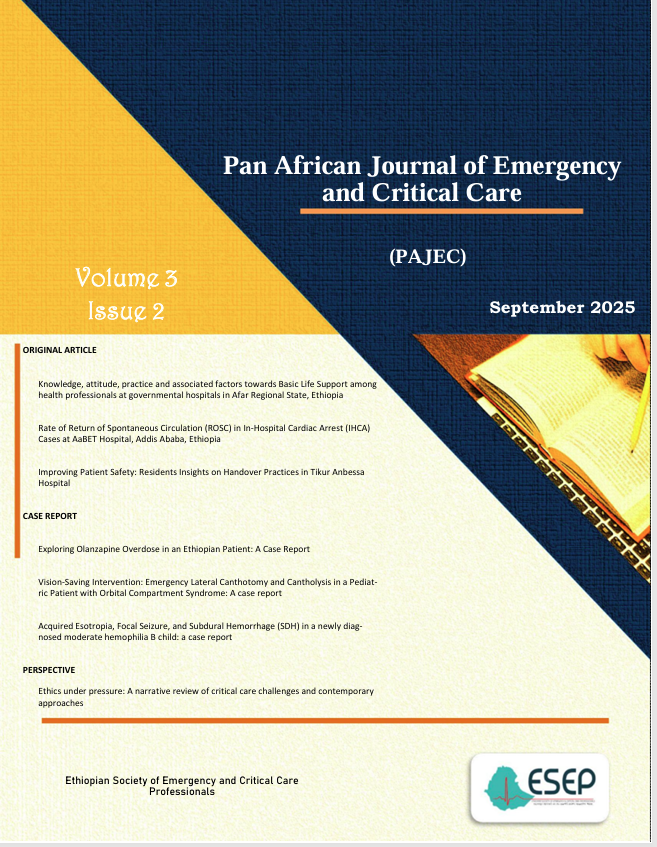Quantification of local populations demand for prehospital emergency care in Jimma city, Ethiopia
DOI:
https://doi.org/10.58904/2023/11Keywords:
Prehospital Emergency Care. Emergency Medical Service. Ambulance Service. Burden of Acute DiseaseAbstract
Abstract
Background: Little is known about a burden of acute illness and injury that would be addressed with improved prehospital care in Ethiopia. This study aimed to quantify the burden of emergency conditions that potentially benefited from implementation of prehospital care service in Jimma city, Ethiopia.
Method: This study is secondary analysis of dataset originally created to characterize the burden of emergency conditions presenting to public hospitals in Jimma city, from 2014 to 2017. We included of 19,885 eligible cases out of 39,537 emergency cases visited to hospitals, and rated for amenability to prehospital care using previous definitions devised for priority emergency conditions in Low-and Middle-Income-Countries. Demographic health report for the same period was also obtained from Jimma health office, and used to quantify the population-normalized rates of demand for prehospital care in the study area. Descriptive analysis was used to summarize demographic data, causes of visit, and need for prehospital care. Odd ratios were calculated to assess the need for prehospital care across major clusters of diseases, statistically significance was considered at a P-value<0.05.
Results: We identified 51.1% (n=10163) of all emergency visits to local hospitals with acute conditions would have benefitted from receiving prehospital care. Maternal emergencies (22.2%, n=2255), lower respiratory infections (20.8%, n=2116) and trauma (27.8%, n=5527) were leading conditions in need of prehospital care. On average, there were 3388 acute events per year, or 1 acute event per every 56 individuals in the population, which could have potentially from prehospital care.
Conclusion: This study identified a significant proportion of emergency conditions could have experienced improved health outcomes had prehospital services been available and rendered in Jimma city. These results provide additional justification for development of formalized prehospital services in Jimma, as well as the need for continued investigation of the health benefits of prehospital care in Ethiopia.
Downloads
Published
How to Cite
Issue
Section
License
Copyright (c) 2023 Shemsedin Amme, Sheka Shemsi, Tura Koshe, Abdulwahid Awol, Ismael Ahmed ; Muktar Beshir; Habtamu Jarso, Sultan Suleman, Gemechis Melkamu, Shimelis Legese , Abdusemed Husen, Matthew Lippi , Nee-Kofi Mould-Millman

This work is licensed under a Creative Commons Attribution-NonCommercial-NoDerivatives 4.0 International License.
This is an open access article distributed under the Creative Commons Attribution License, which permits unrestricted use, distribution, and reproduction in any medium, provided the original work is properly cited.



